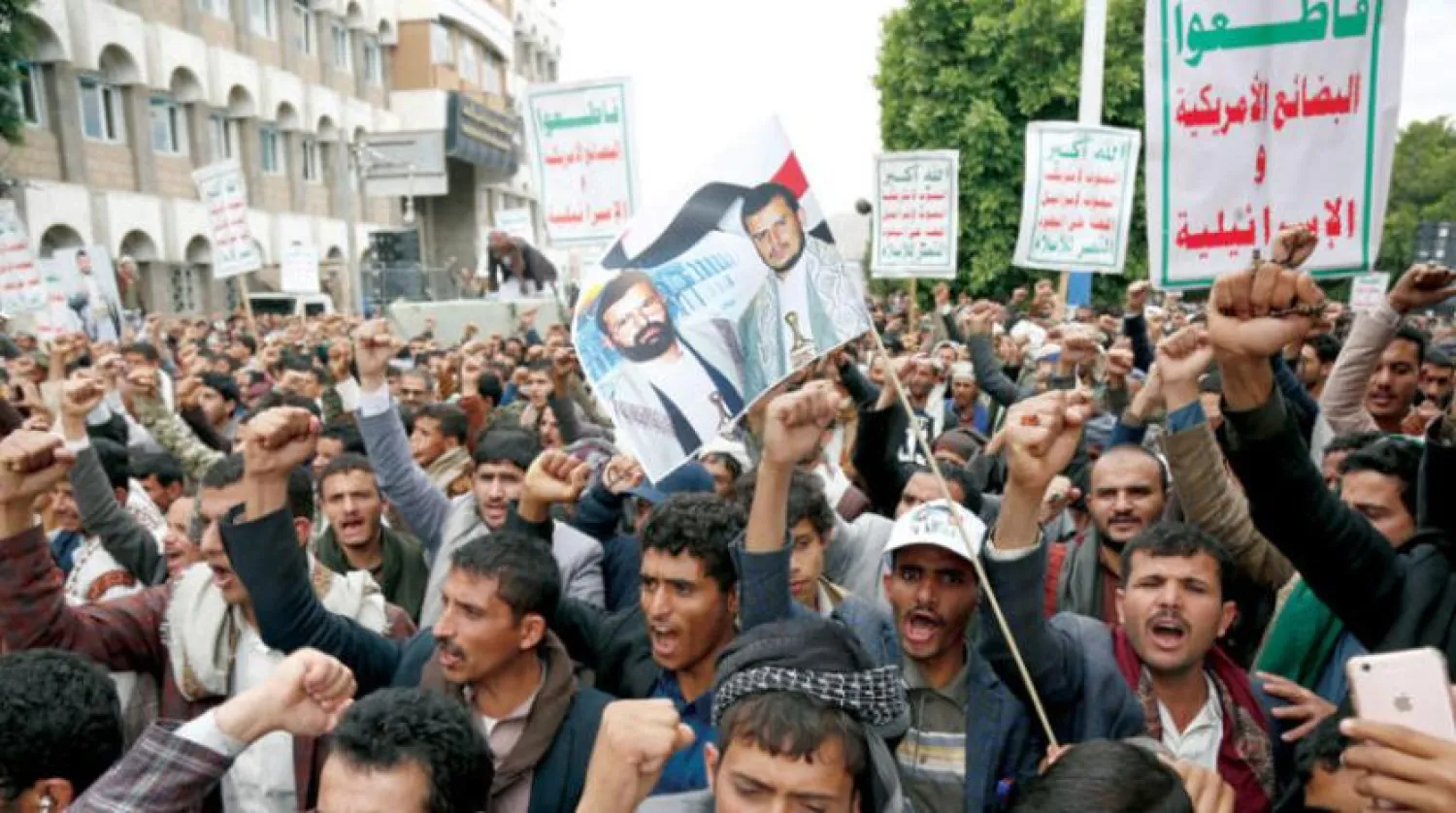Houthis have transformed parts of Yemen’s Presidential Palace, located in southern Sanaa, into a commercial center designated for militia leaders from the Saada governorate, according to local trade sources.
The Yemeni Holding Company, overseen by the internationally sanctioned Houthi financial leader Saleh Mesfer Al Shaer, had acquired swathes of Presidential Palace lands.
Sources based in Sanaa, which was overrun by Houthis in 2014, reported that the group is almost done building a chain of commercial stores on large parts of the presidential complex near the al-Sabeen neighborhood.
Upon completing the construction process, Houthi militias plan on removing the fortified wall surrounding the compound, sources added.
Yemen’s Presidential Palace was built by the late President Ali Abdullah Saleh in the mid-1980s.
The complex contains special sections for presidential housing, meeting rooms, and administrative offices. It also includes a horse ranch, a helipad, and barracks for the Presidential Protection Forces.
Sources point out that Houthis have shrouded the construction of the commercial stores in total secrecy to avoid public discontent, especially from the Yemeni families who had given up their land for the Presidential Palace to be erected.
While there are vast areas of land surrounding the presidential complex, construction was prevented decades ago for security reasons.
The Yemeni Holding Company has been seizing vast tracts of land and companies owned by those who are in opposition to Houthis.
It succeeded in taking over Y-Telecom, a telecommunications company, after a Houthi-aligned judge ordered the firm to file for bankruptcy. This allowed the Yemeni Holding Company to purchase Y-Telecom for cheap.
After seizing the business, Houthis fired 400 employees and later refused to pay the deal’s dues.
Three years after concluding the suspicious deal, Houthis found themselves unable to operate the company.
Although Houthis were hoping to reap billions of riyals from the acquisition, they are now trying to rebrand Y-Telecom and sell it to new shareholders.









